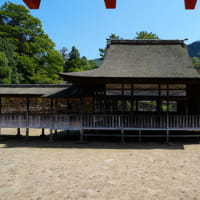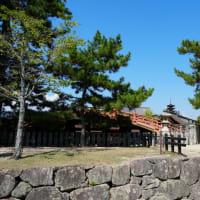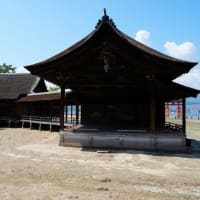June 01, 2019
The following book is a must-read for all Japanese citizens and for people around the world.
It is full of facts that people who only subscribe to Asahi Shimbun and watch NHK never knew...and were never told.
It is one of the best books in the postwar world.
Mr. Shoichi Watanabe is from Yamagata Prefecture, a neighboring Miyagi Prefecture prefecture where I was born.
Yamagata people should continue to be proud to be the fellow citizens of the greatest intellectuals of postwar Japan and a genuine treasure of Japan, Japan, and the world.
The New Constitution Must Be Revoked
So, what should we think about the legitimacy of the Japanese Constitution, as constitutional scholars claim?
The opinion of Kikuji Minamide, perhaps the only non-university-educated lawyer among constitutional scholars, makes the most sense.
In the Potsdam Declaration, the Emperor was "SUBJECT TO.
After that, the order to create a constitution was given, and even a draft was imposed.
A "Constitution Drafting Committee" was created to turn it into a new constitution, but 99 percent of its job was translating the original draft by the occupying forces.
The Japanese commissioners did not create the draft.
And the Εmperor was under threat because he was under occupying military rule.
Therefore, there is no legitimacy in the constitutional admonition.
After all, he was "subordinate" to the Commander-in-Chief of the Allied Forces.
I am deeply pleased that the foundation for the construction of a new Japan has been laid based on the consensus of the Japanese people.
At this moment, I approve the revision of the Imperial Constitution after consulting with the Privy Counsel and the resolution of the Imperial Diet by Article 73 of the Imperial Constitution and promulgating it.
The above warning is not based on the consensus of the Japanese people.
Under the occupation, there was a "press code," so there was no way for information to leak out, and there was no way to criticize the Constitution's draft.
Therefore, the Εmperor was forced to tell a lie.
How can we explain this situation?
There is the concept of a "treaty constitution.
The fact that Japan was occupied by the Allied Forces and the Emperor was subordinate to the Commander-in-Chief of the Allied Forces means that the Japanese government itself was subordinate to the Allied Forces.
A new constitution was created in this context, which means that this was a treaty based on the Potsdam Declaration with the occupying forces.
In other words, the Constitution of Japan is a treaty constitution, not an ordinary constitution.
Specifically, it would be called the Basic Law of Occupation Policy.
Because it was a treaty constitution, when the treaty ended, that is, when independence was restored, the Japanese government had to declare that the Constitution of Japan would expire and that it would either enact a constitution that would exercise sovereignty, that is, a standard constitution, or return to the Meiji Constitution and amend the Meiji Constitution by that procedure.
Furthermore, we should not continue to worship and amend the Constitution of Japan, which was created based on a draft drawn up by the occupying forces.
Since France had experienced the Vichy regime (Note I) after being occupied by Germany, the Constitution should not be amended when part or all of the country is occupied.
When de Gaulle came to power, he pretended that everything the Vichy regime had enacted had never happened.
Now, there is a discussion about amending the Constitution of Japan, but this will indeed cause a wound later.
Even an amateur like me can notice this, and future constitutional law scholars will undoubtedly see it.
If a constitution made in an era without sovereignty is amended, there will surely be arguments later that the post-independence Japanese have given legitimacy to that Constitution.
Of course, the contents of a new constitution can be the same as the current Japanese Constitution.
However, the current Constitution must be revoked.
Japan has debated the amendment clause of Article 96 of the Constitution for years.
The occupying forces created the whole thing in less than ten days, yet the amendment clause alone has been the subject of a Japan-wide debate for years.
It's completely ridiculous.
Why is it ridiculous?
Because it is bogus.
It is ridiculous because it makes no sense.
Political commentator Kenichi Takemura once said, "Common sense in the world is common sense in Japan, and common sense in Japan is common sense in the world.
Most foreigners nodded their heads in agreement.
Well, after the war, "Japanese common sense is the world's insanity," but was that said of prewar Japan?
No, that is not true.
Since the Meiji era (1868-1912), Japan has tried adapting its common sense to that of the world.
The Meiji Constitution was designed to achieve this goal, so Japan's post-Meiji standards were definitely the world's standards.
However, if we use the fraudulent claim that the Constitution of Japan, which is the "Basic Law of Occupation Policy," is the natural Constitution, everything becomes strange.
In any case, "what is common sense in Japan is nonsense in the world."
The preamble of the Constitution of Japan states, "The people of Japan, deeply conscious of the noble ideal of lasting peace that governs our relations with each other, and trusting in the justice and faith of peace-loving peoples, have resolved to preserve our security and existence" (underlined passages).
For example, a small country may entrust its security to a large country when it allies with a large country, just as Monaco entrusts its security to France.
But no country would be foolish enough to trust another country with its survival.
Reading this part alone, which says that a nation entrusts its people to another country to live or die, is equivalent to saying, "This is not the Constitution.
Moreover, look at the countries around us.
The Soviet Union is a country that abducted hundreds of thousands of Japanese after the war was over and starved or froze to death tens of thousands of people.
North Korea is a hereditary dictatorship, South Korea cannot even honor the Basic Treaty between Japan and South Korea, and China has massacred tens of millions of its people and continues to commit atrocities by invading Tibet and Uyghur.
Even the United States ignored the Potsdam Declaration and pretended that Japan unconditionally surrendered.
Are Japanese people willing to trust their safety and lives in such countries?
There is no such constitution.
(Note 1) Vichy regime: In 1940, after France was attacked and defeated by Nazi Germany, a government headed by Marshal Pétain, deputy prime minister of the previous cabinet, was established in the central city of Vichy.
The government was dissolved in 1944 when the Allies liberated France.
Those involved were punished.

2024/6/7 in Nagoya



















